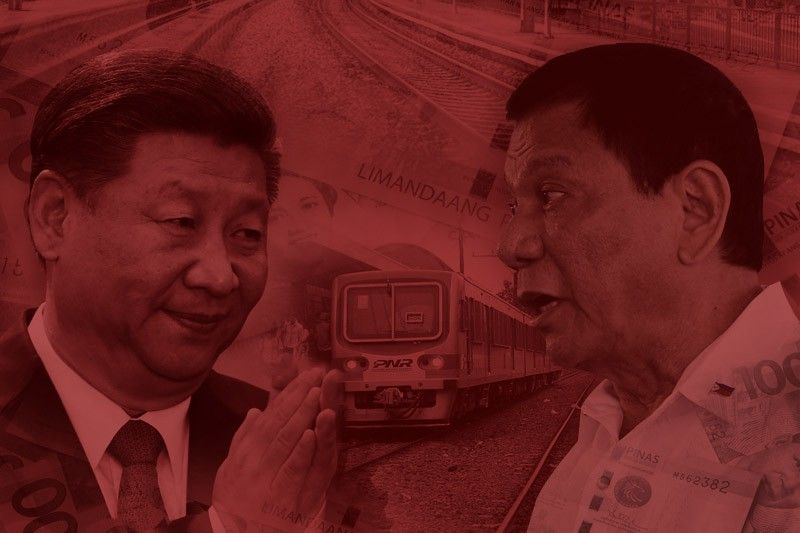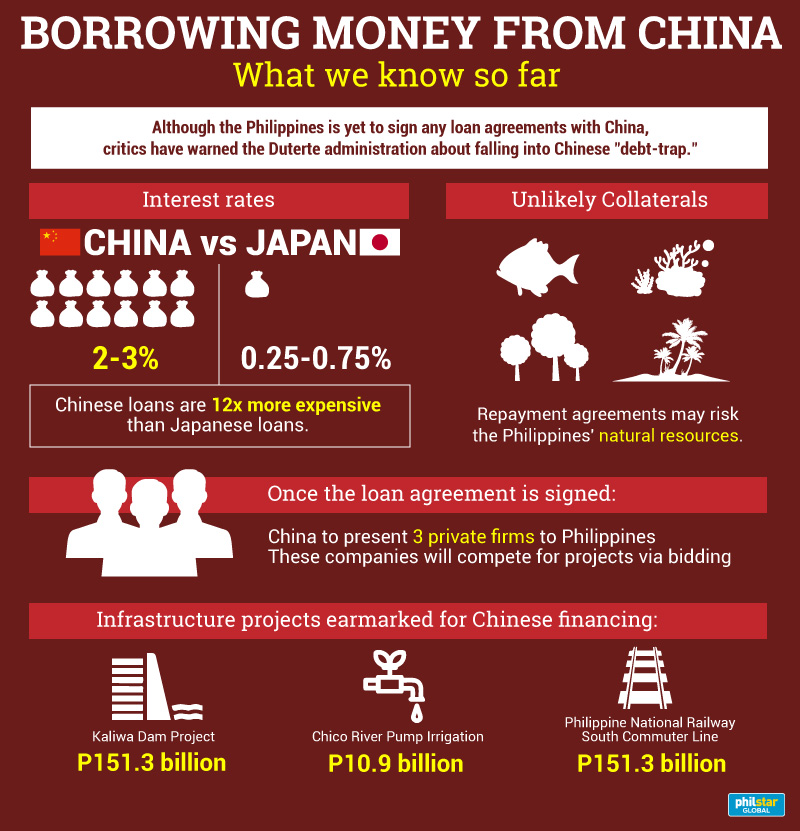For friendship's sake: Philippines falling into China's debt-trap?

MANILA, Philippines — As he charts an "independent foreign policy" while lessening his country's dependence on traditional treaty ally the US, President Rodrigo Duterte is courting regional rivals China and Japan to foot the bill for his administration's aggressive infrastructure push.
But critics have warned that the Philippines could be the next victim of what they say is China's "debt-trap diplomacy," where the Asian power gives "friendly" loans to bankroll infrastructure projects in financially weak states in exchange for regional access.
Socioeconomic Planning Secretary Ernesto Pernia earlier admitted that Chinese soft loans, which carry 2-3 percent interest rates "at best," are more expensive than Japanese loans that only have 0.25-0.75 percent rates, 12 times cheaper than those offered by China.
"The only problem we've had with Japan is the slowness in the processing of their project," he said.
Pernia also pointed out that although higher than Japan's offer, Beijing's interest rate is still "much better" than lending rates imposed by commercial banks.
But the socioeconomic planning chief made it clear that the Philippine government is yet to sign a loan agreement with China.
Collateral
Manila is looking to tap Chinese funding for three projects:
- P2.7-billion Chico River Pump Irrigation Project
- P10.9-billion New Centennial Water Source-Kaliwa Dam Project
- P151.3-billion Philippine National Railway South Commuter Line
In a report by Chinese state-run newspaper Global Times dated March 4, Xiamen University's Southeast Asian Studies Center head Zhuang Guotu explained that Manila can easily repay the loans considering the country's "strong debt-paying ability."
Zhuang likewise insisted that Chinese soft loans have "very low" interest rates. Funding deals, he said, are usually accompanied by repayment agreements that will allow the Philippines to swap key assets like natural resources "as collateral."

Despite Duterte's warm relations with China, the Philippines has a long history of mistrust of it as the two countries continue to spar over the South China Sea.
Opposition has repeatedly criticized Duterte for setting aside a ruling from a United Nations-backed tribunal that favored Manila and invalidated Beijing's claim to sovereignty over most of the resource-rich waters.
What we could learn from the Sri Lanka experience
Last year, Vice President Leni Robredo cited Sri Lanka's recent dealings with Chinese loans as a cautionary tale for the Philippines.
According to reports, China had invested billions of dollars in infrastructure in Sri Lanka, located in the strategic backyard of India, a rival of China.
The tiny nation is also situated near one of the world's busiest shipping lanes where oil tankers from the Middle East pass.
Sri Lanka is a member of China-backed Belt and Road initiative, which aims to revive an ancient Silk Road trading route that would connect Asian markets with economic circles in Europe.
Struggling to pay its obligation, Sri Lanka in December last year gave the strategic port of Hambantota to Beijing on a 99-year lease as a way of repaying Chinese loans.
The New York Times last December reported that Sri Lanka owes more than $8 billion to state-controlled Chinese companies.
Meanwhile, concerns are growing that Pakistan is slowly sliding into Chinese debt trap.
No heavy debt burden
Cabinet officials have vehemently rejected claims that Chinese funding for infrastructure will burden the economy with too much debt.
According to Duterte's economic managers, 80 percent of the funds for the infrastructure drive for 2019 until 2022 will be generated locally while the remaining 20 percent will come from external creditors.
For this year, policymakers adjusted borrowing mix to 74-26 percent in favor of local sources.
They also expect government debt to decline to 37.9 percent of gross domestic product in 2022 from 42 percent last year.
- Latest
- Trending




























